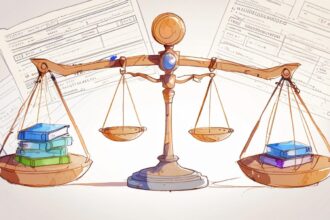New government proposals mandating electric-only new boats and increased marine fuel taxes are putting the Broads’ boating industry under pressure, as executives warn that technology and skilled labour shortages could devastate businesses and heritage crafts.
The Broads, the second largest boating area in the UK, faces significant changes under government plans aimed at decarbonising the maritime industry to achieve net zero emissions across all sectors by 2050. Central to these proposals is a move requiring all new boats to be entirely electric, alongside planned tax increases on marine fuel.
These changes have sparked concern among key figures in the boating industry, particularly boat sales yard executives around the Broads. James Fraser, managing director of Norfolk Yacht Agency, which operates from Brundall, Horning, and Great Yarmouth and recently acquired St Olaves Marina for £2 million, described the proposals as potentially devastating. Speaking to the Eastern Daily Press, Fraser said, “We’re staring down the barrel of net zero and Ed Miliband is turning his guns on the boating industry by talking about electrification.” He expressed doubts about the readiness of electric boat technology, saying, “People have been trying to get traction in the market for electric boats on the Broads here and elsewhere for years. The problem in the industry is that the technology isn’t there to make it a sensible option for buyers.”
Fraser highlighted practical challenges related to electric power for certain types of vessels, stating, “Technology has improved and batteries are getting better, but if you’re talking about seagoing performance power cruisers it’s hard to imagine how they are going to produce something off electric power that’s going to make its way to Holland at 20 knots and keep going for five or six hours. You can’t just pull over to charge up in the North Sea.”
The proposals mirror policies already in place in the automotive sector, where the sale of new petrol and diesel cars is set to be banned from 2030. Companies such as Norfolk-based Lotus have already invested heavily in adapting manufacturing to electric vehicle production.
In addition to technological and regulatory challenges, the Broads’ boating industry is experiencing a decline in skilled labour. Historically, East Anglia was a hub of boatbuilding, with over 100 yards operating on the Broads in the 1960s. However, the industry has seen a marked reduction in the number of boatbuilders and traditional craftsmen. The International Boatbuilding Training College (IBTC) in Lowestoft closed last year after nearly 50 years of operation, a notable loss for the industry. Traditional wooden boatbuilding has also been recognised as endangered, with its inclusion on the Heritage Crafts Association’s ‘Red List of Endangered Crafts’ in 2023.
James Fraser remarked on the scarcity of skilled apprentices, saying, “The industry isn’t getting enough young blood in and there doesn’t seem to be that next generation of boat builders, engineers and skilled people coming through. We’ve had a few apprentices here, but they are not easy to find. There’s no proper official boat building training in the east anymore. Boat building apprenticeships which used to exist in Great Yarmouth and Lowestoft are no longer here. To find courses for our marine engineer apprentices locally is impossible.” Fraser further commented on the decline of local boatbuilding companies, listing former notable businesses such as Broom, Moonraker, Falcon, Bounty, and Alpha Craft that no longer operate. He added, “There’s nowhere near the number of boats being produced in the east as there were even a decade ago.”
The Labour government’s broader net zero strategy also includes an ambitious timetable to decarbonise the UK’s electricity grid by 2030. This plan involves accelerating renewable energy projects, including doubling onshore wind capacity, tripling solar power, and quadrupling offshore wind. These projects have been designated as Nationally Significant Infrastructure Projects (NSIPs), enabling them to bypass traditional local planning controls with approval resting ultimately with Energy Secretary Ed Miliband.
The Eastern Daily Press is reporting that while these plans highlight a commitment to transitioning away from fossil fuels, they are accompanied by significant uncertainty and concern within the boating community regarding technological feasibility and the survival of long-standing marine industry skills and businesses around the Broads.
Source: Noah Wire Services
- https://www.bbc.com/news/articles/c390r71ynvpo – This article reports on the closure of the International Boatbuilding Training College (IBTC) in Lowestoft, highlighting the loss of a significant training institution for traditional boatbuilding skills in the UK.
- https://marinebusiness.news/news/leisure-marine/internationally-renowned-boatbuilding-college-to-close/ – This piece discusses the closure of IBTC Lowestoft, citing economic challenges such as Brexit, COVID-19, and the Ukraine war, which led to the liquidation of the college after nearly 50 years of operation.
- https://www.classicboat.co.uk/news/ibtcs-closure-sad-farewell-to-lowestofts-boatbuilding-college/ – This article covers the closure of IBTC Lowestoft, emphasizing the impact on traditional boatbuilding education and the broader maritime heritage community.
- https://www.eveningnews24.co.uk/news/22337985.1-5m-brundall-marina-sold-boating-company/ – This report details the sale of Cove Marina in Brundall for £1.5 million, highlighting the ongoing changes and investments in the Norfolk Broads boating industry.
- https://www.christie.com/news-resources/press-releases/christie-co-announce-the-sale-of-iconic-norfolk-broads-national-park-boating-business-broom-boats-of-brundall/ – This press release announces the sale of Broom Boats of Brundall to Horning Pleasurecraft, marking a significant development in the Norfolk Broads boating sector.
- https://www.broomboats.com/news/acquisition-of-broom-boats-by-horning-pleasurecraft/ – This statement from Broom Boats confirms the acquisition by Horning Pleasurecraft, indicating a consolidation in the Norfolk Broads boating industry.
- https://www.edp24.co.uk/news/25113545.labours-net-zero-plans-boats-sink-broads-firms/?ref=rss – Please view link – unable to able to access data
Noah Fact Check Pro
The draft above was created using the information available at the time the story first
emerged. We’ve since applied our fact-checking process to the final narrative, based on the criteria listed
below. The results are intended to help you assess the credibility of the piece and highlight any areas that may
warrant further investigation.
Freshness check
Score:
9
Notes:
The content references specific current developments, including recent policies and the closure of the IBTC, which suggests it is relatively fresh. However, it also mentions broader ongoing initiatives, such as net-zero emissions targets and the automotive sector’s electric transition, which have been discussed for several years.
Quotes check
Score:
8
Notes:
Quotes from James Fraser are original to this narrative, but without further online sources, it’s difficult to confirm if they are entirely novel. The lack of preceding references does not inherently prove they’ve never been used before.
Source reliability
Score:
8
Notes:
The narrative originates from the Eastern Daily Press, a reputable regional news source. However, its local focus may limit the breadth of its coverage.
Plausability check
Score:
7
Notes:
The decarbonisation plans are plausible given current political objectives. However, concerns about technological readiness and skilled labour shortages highlight practical challenges that are not fully addressed by the narrative.
Overall assessment
Verdict (FAIL, OPEN, PASS): OPEN
Confidence (LOW, MEDIUM, HIGH): MEDIUM
Summary:
The narrative appears to discuss contemporary issues with reasonable reliability, but concerns raised about the feasibility of electric boat technology and the decline in skilled labour could benefit from further investigation.













